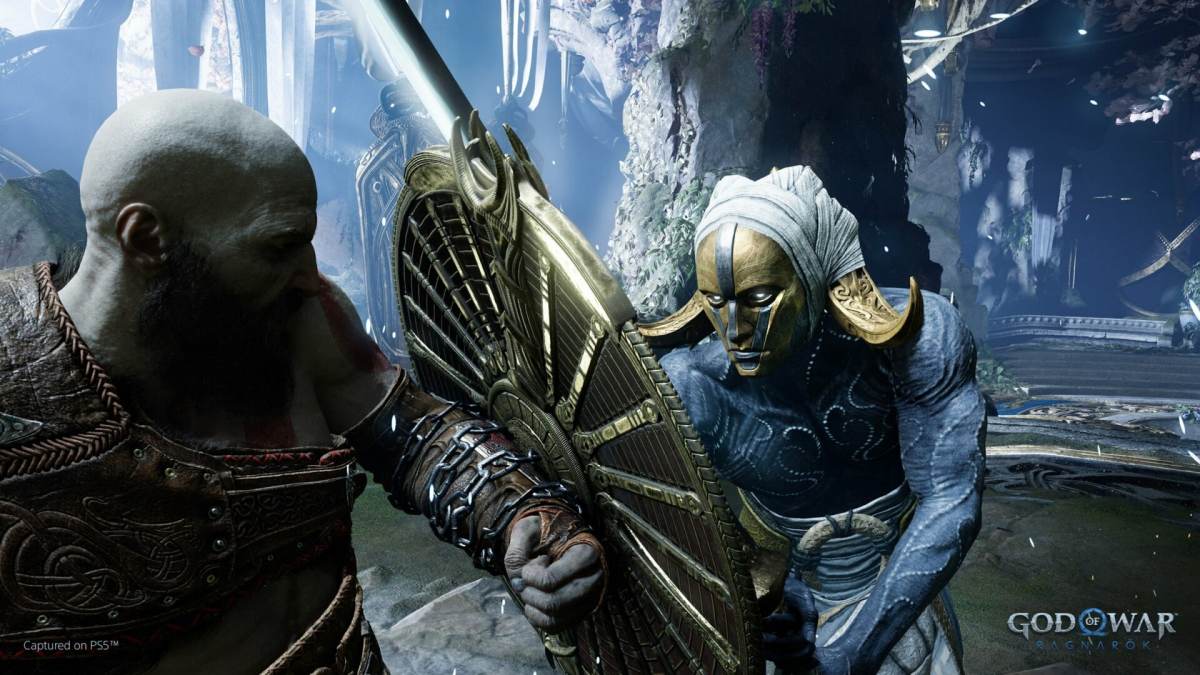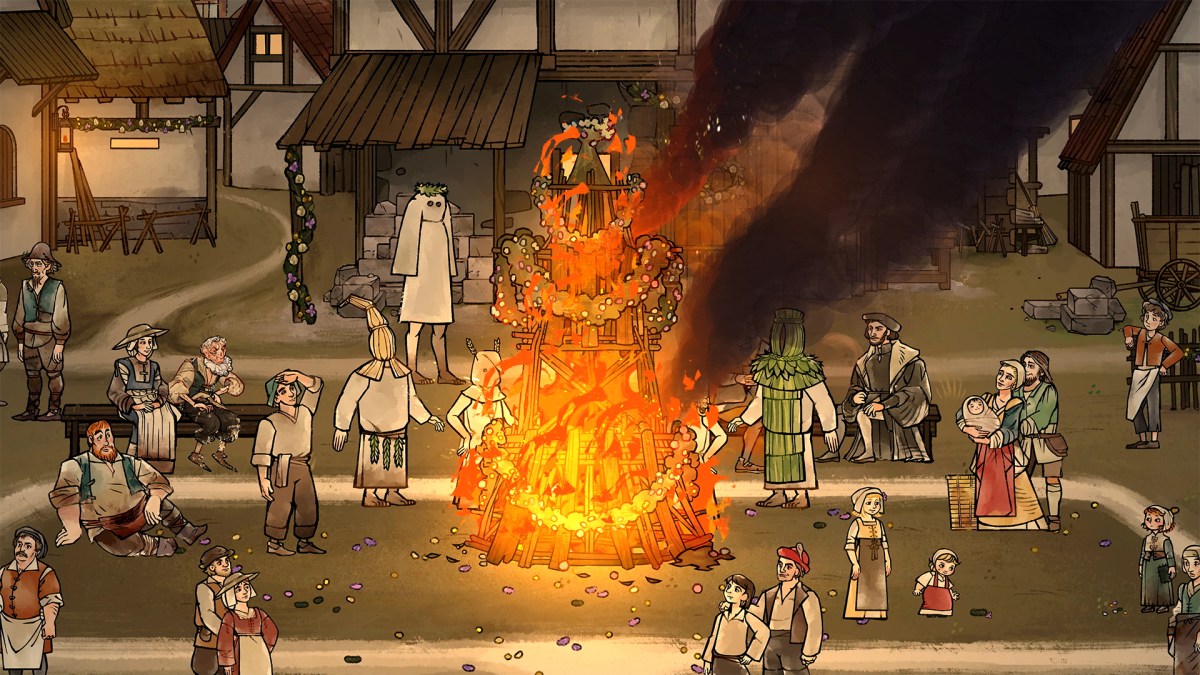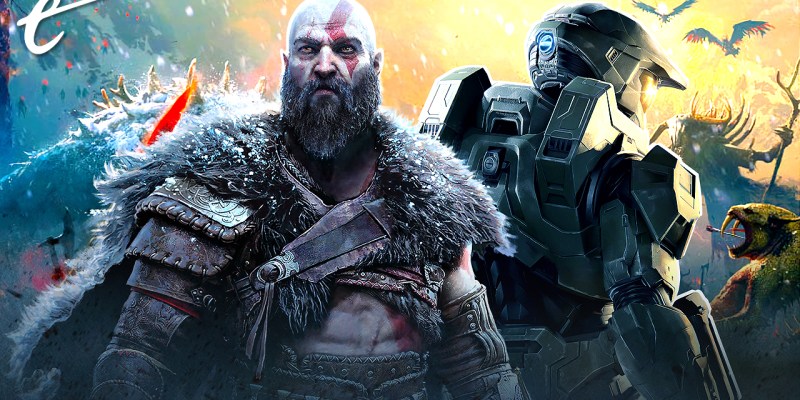This is going to seem like a pretty silly time to make this argument, considering we’re on the cusp of Sony releasing God of War Ragnarok, a game that has been getting rave reviews and sits right alongside Elden Ring as my most anticipated of 2022. But while I’m very much looking forward to immersing myself in another 40-hour adventure with Kratos and Atreus, I’ve been thinking lately about the disproportionate amount of time and energy that’s spent online debating and scrutinizing the overall first-party portfolios of both PlayStation and Xbox — and how this is misplacing the focus away from so many other great games that deserve more attention.
For me, the never-ending console war is, has been, and will be one of the most boring things to talk about in the orbit of video games. It’s ultimately a debate where one group of tech zealots idolizes their plastic box and pits their handful of exclusive games against the other side’s plastic box and their handful of exclusive games. It would be like if there were some strange culture war between moviegoers where one side bled for AMC, while the other side got Cinemark tattooed on their biceps — strange stuff.
At the same time, I get why there’s so much discussion around the first-party games themselves. They tend to become synonymous with the identity of the brand, with the likes of Master Chief and Marcus Fenix representing Xbox in the same way Kratos and Ellie represent PlayStation. And I understand that I speak from a place of privilege where I’m now able to afford new consoles at launch, so a game being exclusive to one platform or the other doesn’t prohibit me from playing it. But both PlayStation and Xbox are already brimming with enough games to last you the next decade, and to focus so much of your attention and energy on what ultimately amounts to only a scant few games of the thousands that release each year feels like a massive waste of time.

Now admittedly some of this discussion stems from Sony and Microsoft themselves. During a recent appearance on the SameBrain videocast, Microsoft Gaming CEO Phil Spencer remarked, “One thing we’ve definitely heard loud and clear is it’s been too long since we’ve shipped what people would say is a big first-party game.” This was in response to the fact that PlayStation’s first-party output since the launch of the new consoles almost two years ago has largely outpaced that of Xbox’s.
On Sony’s side, we got Demon’s Souls, Astro’s Playroom, and Spider-Man: Miles Morales at the launch of PlayStation 5, Returnal and Ratchet & Clank: Rift Apart in 2021, and Horizon Forbidden West, Gran Turismo 7, and God of War Ragnarok this year, not to mention annual MLB: The Show titles. That’s a lot of really good games right there. And while Xbox has struck gold with the likes of Psychonauts 2 and Forza Horizon 5, the stumbling launch of Halo Infinite and delay of high-profile games Starfield and Redfall has left a sizable gap in its portfolio, with the obvious wrinkle that this discussion will change dramatically once the ever-growing suite of Xbox Studios begin to hit their cadence next year.
But to me personally, what Xbox has done with the growth of Game Pass has meant far more than its first-party output (or lack thereof). The amount of incredible indies that have found a platform there has led to my finding many of my favorite games of the past few years, like Outer Wilds and Spiritfarer. In just the past few and upcoming weeks, Game Pass will have added Scorn, A Plague Tale: Requiem, Persona 5 Royal, Signalis, Pentiment, Somerville, Return to Monkey Island, and Vampire Survivors. Pentiment from Obsidian is the only one of those that’s an Xbox Studios game, with the rest coming from a global swath of teams of various shapes and sizes. This single-month slice of games is exponentially more interesting to talk about than which first-party lineup is better.

And again, while I am so stoked to explore the Nine Realms in Ragnarok next week, there are so many incredible games this year like Immortality, Neon White, Haiku, Stray, Tunic, Tinykin, and Frogun that are some of my absolute favorite games of 2022. And none of those get a fraction of attention that console warriors put towards placing their first-party games on a pillar, while digging a ditch for the other side’s lineup.
So I’ve neglected to mention one major company so far. As you might be able to guess by now, that’s Nintendo, which is the caveat to this whole discussion. Ever since the NES, Nintendo’s games have been inseparable from its brand and hardware itself. Mario, Zelda, Metroid, Smash, Kart, Animal Crossing, and Splatoon are what Nintendo is at its very core. One need only look at the Switch, where 29 of the 30 bestselling games to date are either developed or published by Nintendo, with Capcom’s Monster Hunter Rise being the sole outlier. I guess, in conclusion, Nintendo’s gonna Nintendo, which is what makes it Nintendo.
The debate surrounding first-party games isn’t going away any time soon. More fuel will be added to the fire when God of War Ragnarok inevitably wins a bunch of GOTY awards, Starfield comes out exclusively on Xbox and PC next year, the Activision Blizzard deal (presumably) goes through, and Sony and Microsoft inevitably make more studio acquisitions. And while these things are all fascinating to discuss, analyze, and prognosticate, using one company’s success to diminish another’s stumbles seems so boring, especially when there are so many great games deserving of more conversation.
